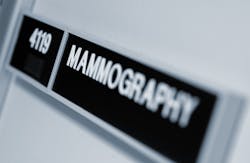Google Health Announces Partnership with iCAD
According to a Nov. 28 blog post, Google Health announced its first commercial agreement to license its mammography AI research model to be integrated in real-world clinical practice. The organization will be partnering with Nashua, N.H. headquartered-iCAD, a medical technology and cancer detection company.
The blog post says that “iCAD will work toward validating and incorporating our mammography AI technology with its products for use in clinical practices with the goal of improving breast cancer detection and assessment of short-term personal cancer risk for the more than two million people globally diagnosed with breast cancer every year.”
Further, “While breast screenings are critical to improving outcomes, a shortage of specialists around the world means that screening systems are often overburdened, leading to long, anxiety-filled delays for people awaiting results. In screening programs today, there are challenges related to access, accuracy, patient experience, and clinician workload. iCAD’s breast imaging portfolio of tools and Google Health’s mammography AI technology give radiologists the opportunity to focus on their patients.”
iCAD, according to the blog post, will license Google Health’s AI technology and use Google Cloud’s infrastructure. By leveraging this technology iCAD aims to scale access to AI-based tools in underserved regions.
The blog post adds that Google Health has invested, researched, and tested its mammography work for several years. Partnering with iCAD, says Google Health, is the next step in integrating its technology into a real-world clinical setting.
Additionally, the blog post says that “We also worked with partners to design studies where AI was used to support real screening systems to understand whether the technology can help in a clinical workflow. Through a partnership with Northwestern Medicine, we’re researching how our technology can help prioritize high-risk cases and shorten the time to diagnosis for screened individuals. This technology may help reduce anxiety in patients by shortening callback times for additional screenings.
“Since breast cancer screening systems vary globally, we recognized the need to test this technology in different regions. Through the NHS AI Award, we are working with Imperial College London and three NHS trusts to examine whether our technology can act as a “second independent reader” in UK double-read screening systems and allow radiologists to focus on high-priority cases while improving consistency and quality of screening.”


